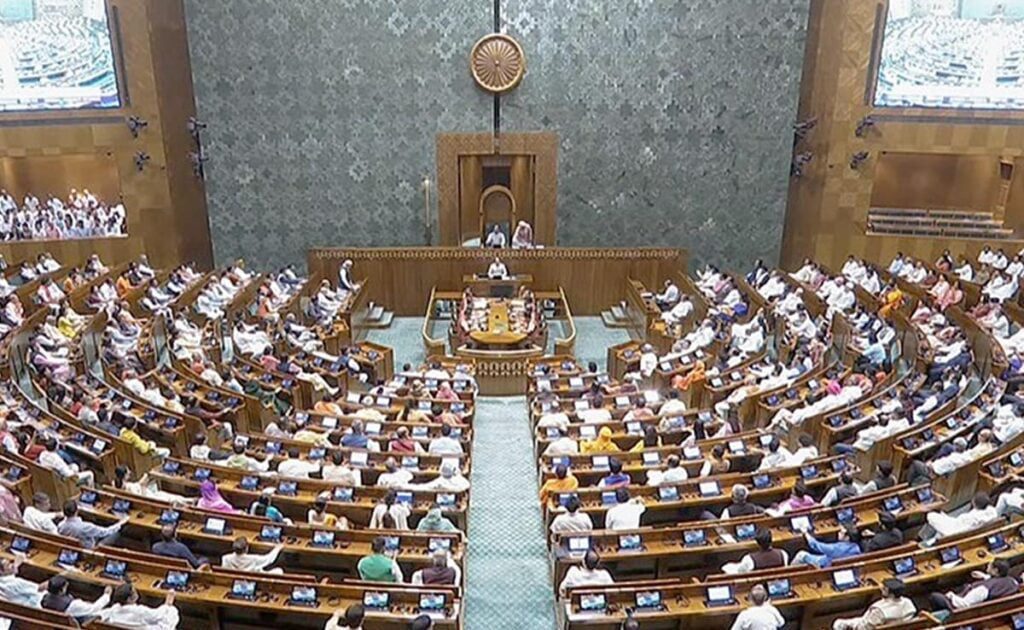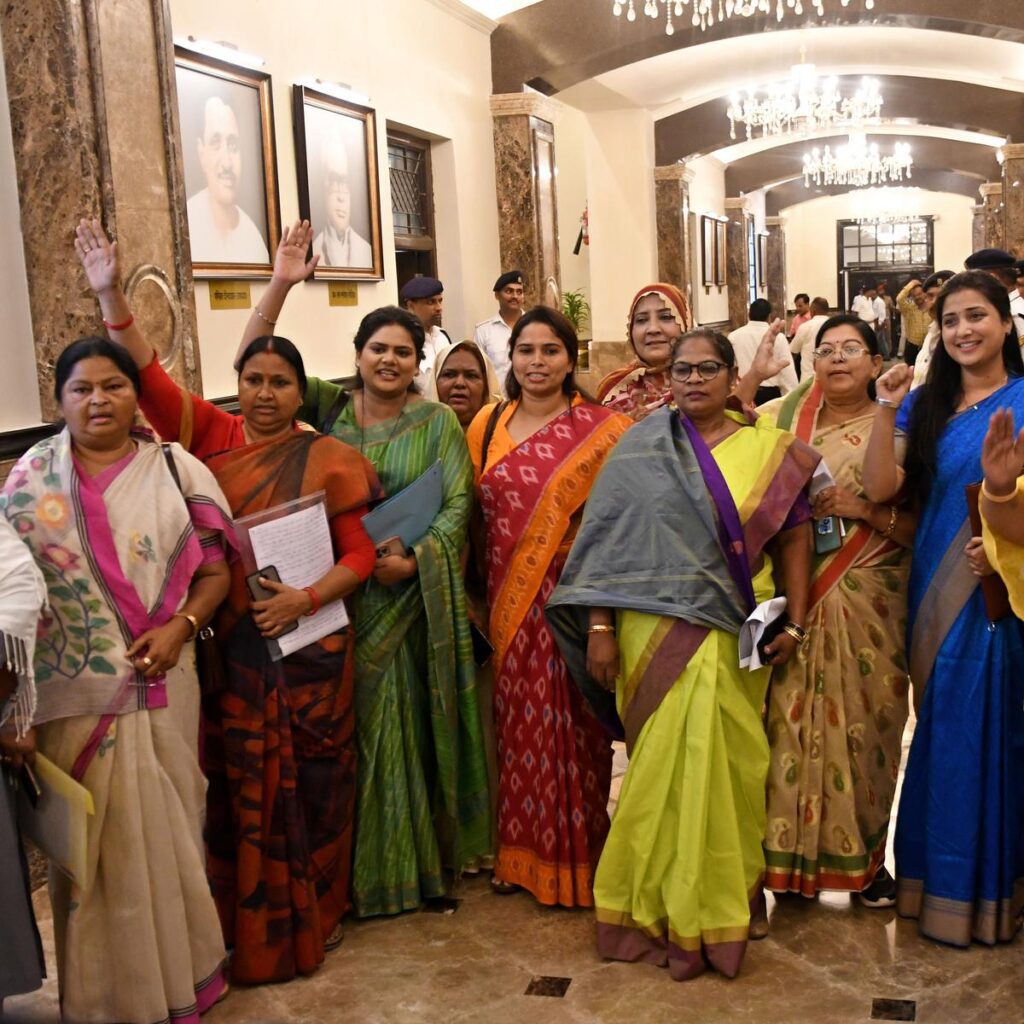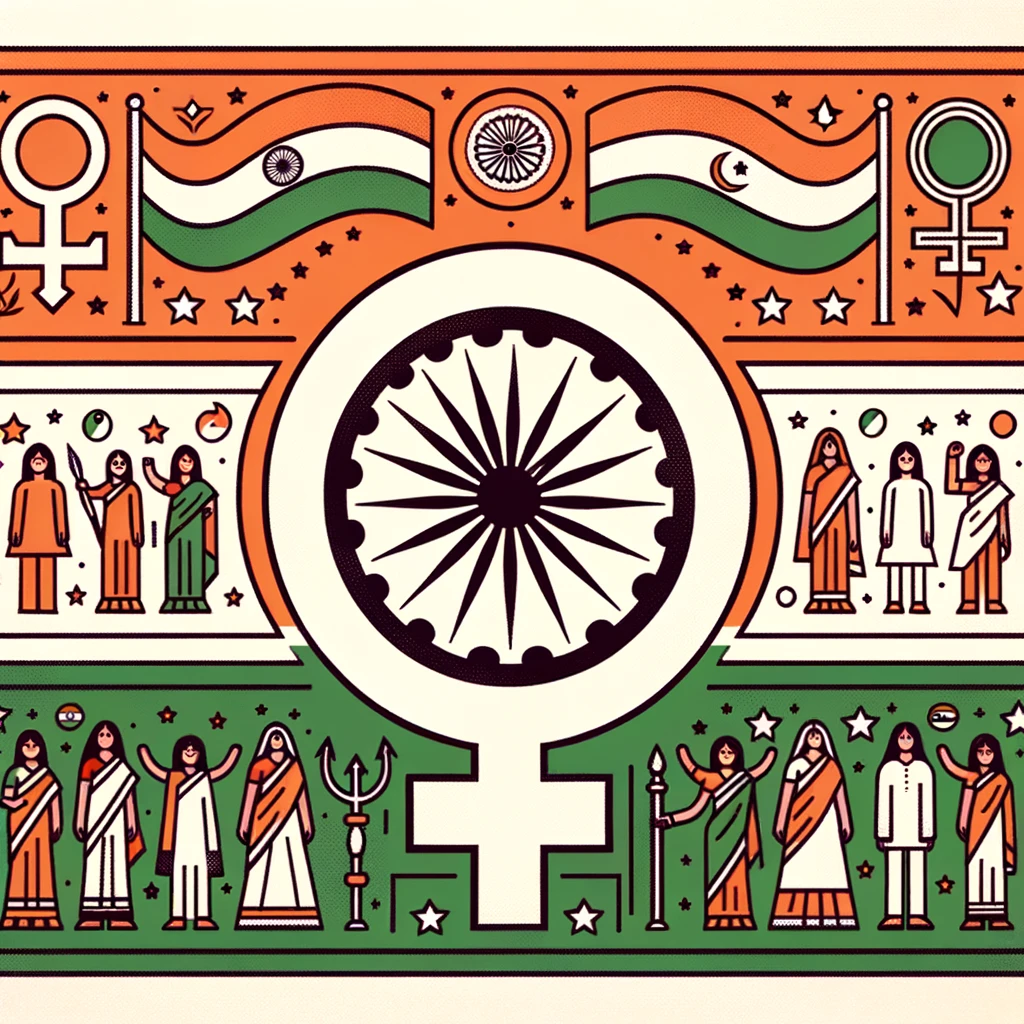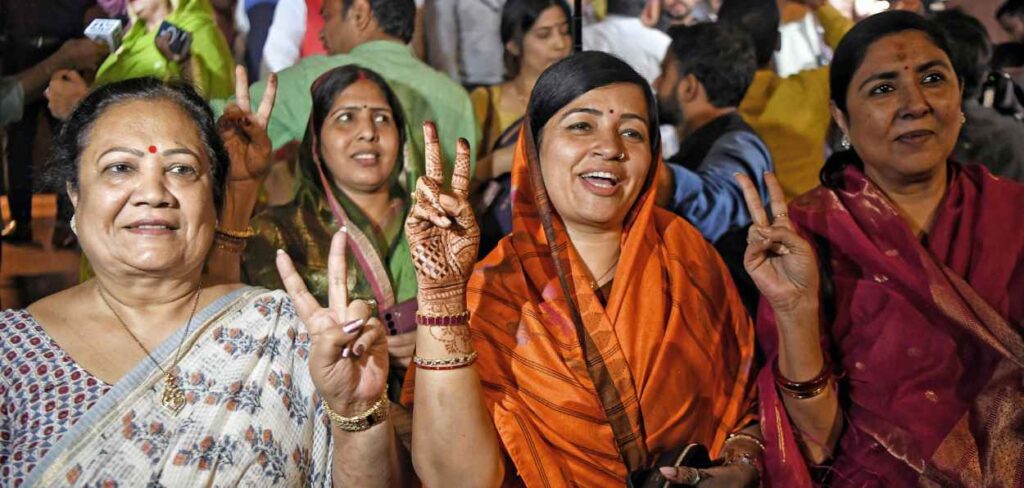Explore the Women Reservation Bill Pros and Cons in India and its impact on women’s representation in politics. Learn about its benifits and the challenges.
Women Reservation Bill: What You Need to Know
- The Women Reservation Bill, also known as the Nari Shakti Vandan Adhiniyam, is a significant law in India. It aims to ensure more women have a say in the country’s politics. We’ll break it down for you in simple terms.
- The Women’s Reservation Bill, also known as the Constitution (108th Amendment) Bill, 2008, has been a topic of extensive discussion and debate in India. This article delves into the origin, journey, need, status, key features, and global comparisons of this bill, while also exploring Women Reservation Bill pros and cons.

Women Reservation Bill: Historical Context
- India has a rich history of women leaders who have made remarkable contributions to various fields. However, when it comes to political representation, women have often found themselves underrepresented. The roots of this issue can be traced back to historical and societal norms that relegated women to domestic roles, limiting their participation in public life.
- Over the years, there have been notable efforts to increase women’s representation in politics, including the introduction of reserved seats for women in Panchayats (local governing bodies). These initiatives have showcased the capabilities of women leaders and their ability to drive positive change at the grassroots level.
Need for the Women Reservation Bill
- The underrepresentation of women in India’s political landscape is a stark reality. Currently, just 14% of Lok Sabha MPs and approximately 11% of the Rajya Sabha members are women. This glaring gender gap becomes evident when compared globally, with India ranking 144th out of 193 countries in the representation of women in Parliament. Bridging this gap is crucial for the country’s development and to promote gender-sensitive laws.
- Despite these efforts, women’s representation in India’s highest legislative bodies, such as the Lok Sabha and state assemblies, has remained alarmingly low. This underrepresentation has significant consequences, as it affects the policymaking process and the focus of legislation.
- Women’s unique perspectives and experiences often differ from those of their male counterparts, and without adequate representation, their voices may go unheard.
- The Women’s Reservation Bill seeks to address this gender disparity by reserving one-third of all seats in the Lok Sabha and state legislative assemblies for women. This move is crucial for several reasons:
Breaking the Glass Ceiling
For far too long, the glass ceiling has limited the aspirations of women in India. By reserving a significant number of seats for women, the bill shatters this ceiling, giving women the opportunity to aim for the highest offices in the country.
Amplifying Women’s Voices
When women have a seat at the table, they can advocate for policies and issues that directly affect them and other marginalized groups. Studies have consistently shown that women legislators are more likely to prioritize matters related to women’s rights, healthcare, education, and social welfare.

Encouraging Political Participation
The bill also serves as an inspiration for young girls and women across the nation. Seeing more women in leadership positions can motivate them to engage in the political process, pursue higher education, and aim for careers in fields that were once considered out of reach.
Aligning with Global Goals
The Women’s Reservation Bill (Nari Shakti Vandan Adhiniyam) aligns with global initiatives for gender equality, particularly Goal 5 of the Sustainable Development Goals (SDGs). It also reflects India’s commitment to the UN Convention on the Elimination of All Forms of Discrimination Against Women (CEDAW).
Status of Women Reservation in India
While the 73rd and 74th Amendments in 1993 introduced reserved seats for women in panchayats and municipalities, the Constitution did not provide for similar reservation in the Lok Sabha and state legislative assemblies. Several bills amending the Constitution to rectify this were introduced but lapsed over the years.
Current Status
Despite some progress, the representation of women in state assemblies and Parliament remains abysmal. To address this, the Constitution (One Hundred and Twenty-Eighth Amendment) Bill, 2023 was introduced, seeking to reserve one-third of seats for women in Lok Sabha and state legislative assemblies.

Key Features of the Bill
- The new bill reserves one-third of all seats for women in Lok Sabha, state legislative assemblies, and the Legislative Assembly of the National Capital Territory of Delhi.
- This reservation will also apply to the seats reserved for Scheduled Castes (SCs) and Scheduled Tribes (STs).
- The bill’s provisions will come into effect after the publication of the census and continue for 15 years, with the possibility of extension by Parliament.
Read More
How PM Vishwakarma Scheme Benefits | PM Vishwakarma Yojana (2024)
Global Examples
Internationally, women leaders have proven themselves as capable as their male counterparts. Countries like Norway, with a quota system for corporate boards, have achieved remarkable gender equality in leadership roles. Rwanda, led predominantly by women, has shown remarkable progress and social reforms.
Women Reservation Bill Pros and Cons
Pros of the Women Reservation Bill
More Women in Politics: India ranks low in women’s political representation globally. This bill aims to change that by reserving one-third of parliamentary seats for women. This means more female Members of Parliament (MPs) and representatives in state assemblies.
Women’s Voices Heard: Studies show that female legislators often raise issues like women’s rights, health, education, and safety more effectively than men. This bill means more focus on problems affecting women.
Inspiration for Girls: With more women leaders, young girls can dream big. They’ll see role models and might aspire to higher education and political careers. This bill challenges old beliefs and encourages girls to aim high.
Supports Sustainable Development Goals: The bill aligns with global goals for gender equality and women’s empowerment. It also follows international agreements that India has signed.

Cons of the Women Reservation Bill
Quality of Representation: Critics worry that some women may be chosen based on connections or family ties rather than their skills. This might lead to ineffective lawmakers.
Ignoring Root Problems: The bill won’t solve all problems women face in India. Deep-rooted issues like patriarchy, caste systems, and economic disparities also need attention.
Lack of Diversity: The bill may not ensure that women from all backgrounds get a fair chance. Some groups want a “quota within quota” system to address this issue.
Uncertain Timeline: Implementing the bill involves many steps that could take years. Critics accuse the government of delaying it on purpose.
| Pros of Women’s Reservation Bill | Cons of Women’s Reservation Bill |
| Provides more democratic choice to voters. | No guarantee that a significant number of women would get elected. |
| Allows more flexibility for political parties in candidate selection based on local factors. | Political parties may assign women candidates to constituencies where they are weak. |
| Permits nomination of women from minority communities where it’s electorally advantageous. | May lead to resentment if a woman is accommodated to the disadvantage of a stronger male candidate. |
| Increases the number of women in parliament, promoting gender diversity. | Some argue that it may create the impression that women are not competing on merit. |
| Aligns with international commitments to eliminate discrimination against women in politics. | May not address broader electoral reforms and systemic issues in the political landscape. |

Conclusion
The Women’s Reservation Bill is a big step towards women’s empowerment in India. It aims to bring more women into politics. But it has its challenges, and we must think carefully about its pros and cons. The bill also needs swift action and effort to tackle the obstacles women face in all aspects of life.
What is Women Reservation Bill in India 2023? Its Importance
FAQs
Q1. What is the Women Reservation Bill or Nari Shakti Vandan Adhiniyam?
A1. The Women’s Reservation Bill is a law in India that reserves one-third of parliamentary seats for women to increase their representation in politics.
Q2. Why is the bill important?
A2. It’s important because it can address the low representation of women in Indian politics and empower them to make decisions that affect their lives.
Q3. Will the bill guarantee good women leaders?
A3. Not necessarily. Critics worry that some women might be chosen based on connections rather than merit.
Q4. What challenges does the bill face?
A4. The bill faces challenges in implementation, and it might not address all the root causes of gender inequality in India.
Q5. When will the bill be implemented?
A5. The implementation timeline is uncertain and might take years due to various procedural steps.
Q6. Who supports the Women Reservation Bill?
A6. The bill has the support of the Indian government, the United Nations, and many civil society groups who believe it can empower women.
Q7. How can we ensure the bill’s success?
A7. The bill’s success depends on its proper implementation and addressing the broader issues that hinder women’s participation in politics and society.
